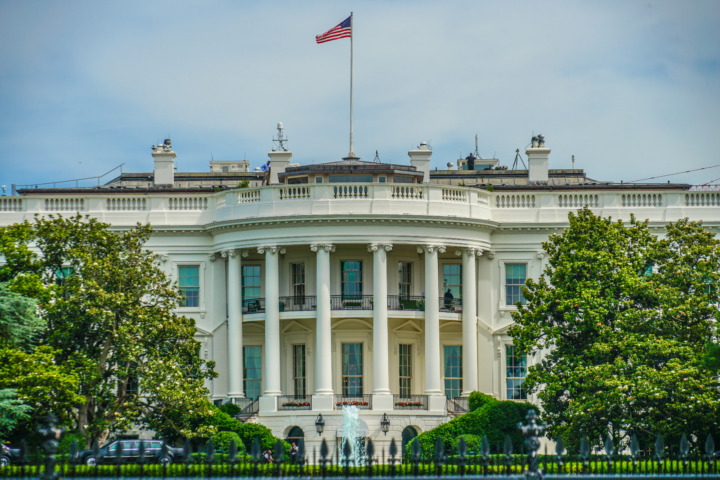While white evangelicals remain a core voting bloc for President Donald Trump, in the 2020 race against Joe Biden white Catholics are expected to be a crucial demographic.
Data indicates that Biden—a lifelong member of the Catholic church—may shift the white Catholic vote away from the Republican leanings it held for the past four presidential elections and make it a true swing vote going forward.
Even small changes among Catholics could affect the electoral outcome, particularly in swing states. In 2016, Donald Trump won Wisconsin, Pennsylvania, and Florida by narrow margins of 1 percent to 1.2 percent of the votes cast.
Despite all the chatter around the strong support that Trump received from white Christians and white evangelicals last election, their voting patterns in 2016 were relatively consistent with elections going back to 2008.
Across Christian traditions, white voters have been relatively stable but have slowly drifted toward the Republican Party by 3–4 percentage points in eight years. (Nonwhite Christians, particularly black Protestants, have historically favored the Democratic Party by strong margins and are expected to continue to do so this year.)
For instance, in the 2008 presidential matchup, 78 percent of white evangelicals cast their ballots for Barack Obama’s Republican challenger, John McCain. Trump did just a few points better in 2016, with 81 percent.
The partisan split among white Catholics and white mainline Protestants mostly held steady as well. In both 2008 and 2012, 56 percent of white Catholics voted for the GOP, and that nudged up just slightly to 59 percent in 2016.
For mainline Protestants, the vote in 2008 was nearly evenly split, with John McCain receiving a slim majority of votes (53%). Mitt Romney did slightly better four years later (55%). Trump enjoyed slightly more support from white mainline Protestants in 2016 (58%).
What do these patterns tell us about potential outcomes for 2020? Polling during the spring and summer of this year—during the uncertainty of the coronavirus pandemic—indicated that President Trump may be in a weaker electoral position this time.Based on weekly survey data collected by Data for Progress, then broken down by Christian traditions, we see white Christian support for the president slipping. Across traditions, slightly fewer Christians say they plan to vote for Trump and slightly more say they plan to vote for Biden than five months ago.
According to the Data for Progress survey, Biden’s share of the evangelical vote hovered around 20 percent in April and May, right in line with Clinton’s share four years ago. Trump’s support was around 70 percent, with about 15 percent of the sample saying that they were undecided or expressing the intention to vote for a third-party candidate.
However, support for Biden edged up during July and August to around a quarter of white evangelicals intending to vote for the Democratic challenger. The most recent data (collected on September 1) shows that Biden has as high as 30 percent of the white evangelical vote, a significant uptick from Clinton’s result in 2016 of just 19 percent.
If the trends hold, it appears likely that Trump may end up receiving 75 percent of the white evangelical vote, or possibly even less if those who are undecided break toward Biden in the last several weeks of the election cycle.[/toggle]
ジョー・バイデン候補との大統領選で、カトリック教徒の票の行方が注目を集めている。
ドナルド・トランプ大統領にとって福音派白人層が主要な支持層であることに変わりは無いが、ジョー・バイデン候補との戦いにおいてはどれだけの票をカトリック白人層から得られるかが重要になる見通しだ。
過去4回の大統領選においてカトリック信徒たちは共和党を支持してきたが、生涯カトリック教会のメンバーであるバイデンがその流れを覆す可能性がある。
各教派の支持状況
カトリック教徒の間に生まれる変化がわずかなものに見えても、それが激戦区での選挙結果に与える影響は大きい。2016年の選挙で、トランプ候補(当時)はウィスコンシン州、ペンシルバニア州、フロリダ州を勝ち取ったが、その勝利は全体の1%~1.2%と極めて僅差だった。
福音派白人層の支持については様々なことが言われているものの、同グループが今回の選挙でもトランプ大統領を支持することは濃厚だ。2016年大統領選における福音派層の支持傾向は、2008年の選挙のそれと酷似している。
伝統的キリスト教徒全体を見ると、白人層有権者はこの8年で共和党支持へと3~4%の割合で傾いている。(非白人層のキリスト教徒、特に黒人プロテスタントは、歴史的にみて民主党を支持しているし、今年もその傾向は現れるだろうと予想される。)
例えば2008年大統領選で、共和党ジョン・マケイン候補に投票した福音派白人層の割合は78%に上る。トランプ候補(2016年当時)はそれをわずかに上回る81%の支持を得ている。
カトリック白人層、主流派プロテスタント白人層の支持政党の割合は、この間ほぼ動いていない。2008年に56%のカトリック白人層が共和党候補に投票したが、2012年の選挙ではそれから少し上昇して59%となっている。
2008年の大統領選では、主流派プロテスタントの支持はジョン・マケイン候補にわずかに傾き(53%)その4年後に共和党候補(ミット・ロムニー候補)の支持は更に微上昇している。(55%)2016年の選挙では、主流派プロテスタントのトランプ候補支持率は更にわずかに上昇した結果となっている。(58%)
この傾向は今年の選挙戦について何を示唆するものだろうか?
今年、パンデミックが蔓延(まんえん)した春から夏にかけて行われた調査では、今年の大統領選を前にトランプ支持率が弱まっている可能性が見えてきている。

前回の選挙戦とは様子が違う
毎週の支持率を調べている米調査会社データ・フォー・プログレスの調査結果を、各教派ごとに分けて見てみると、クリスチャン白人層のトランプ支持率が減少傾向にあることが分かる。また教派を問わず、クリスチャン全体で見ても「トランプ大統領に投票する予定だ」という返答は減り、「バイデン候補に投票する予定だ」いう回答は(5か月前と比べて)増えている。
同調査によると、福音派のバイデン支持率(4月~5月)は約20%と、4年前のクリントン候補支持率と変わらない結果となっている。一方、トランプ大統領の支持率は約70%であり、回答者の約15%はまだ決め切れていない、あるいはその他の候補者に投票する、と答えた。
しかし、7月から8月にかけてバイデン候補を支持する福音派白人層は、およそ25%までじりじりと上昇した。最近の調査(9月1日)では、その支持率は30%となっており、クリントン候補(2016年)支持の福音派白人層が19%だったことを考えれば、その差は歴然だ。
もしこの傾向が続けば、大統領選における福音派白人層のトランプ大統領支持率は75%程度に落ち込むかもしれない。これから11月の開票日までに、流動票がバイデン候補に流れるようなことがあればなおさらだ。
(続く)
執筆者のライアン・P・バージは東イリノイ大学助教授(政治学)。
本記事は「クリスチャニティー・トゥデイ」(米国)より翻訳、転載しました。翻訳にあたって、多少の省略をしています。
出典URL:https://www.christianitytoday.com/news/2020/september/trump-biden-white-catholic-swing-vote-evangelical-poll.html